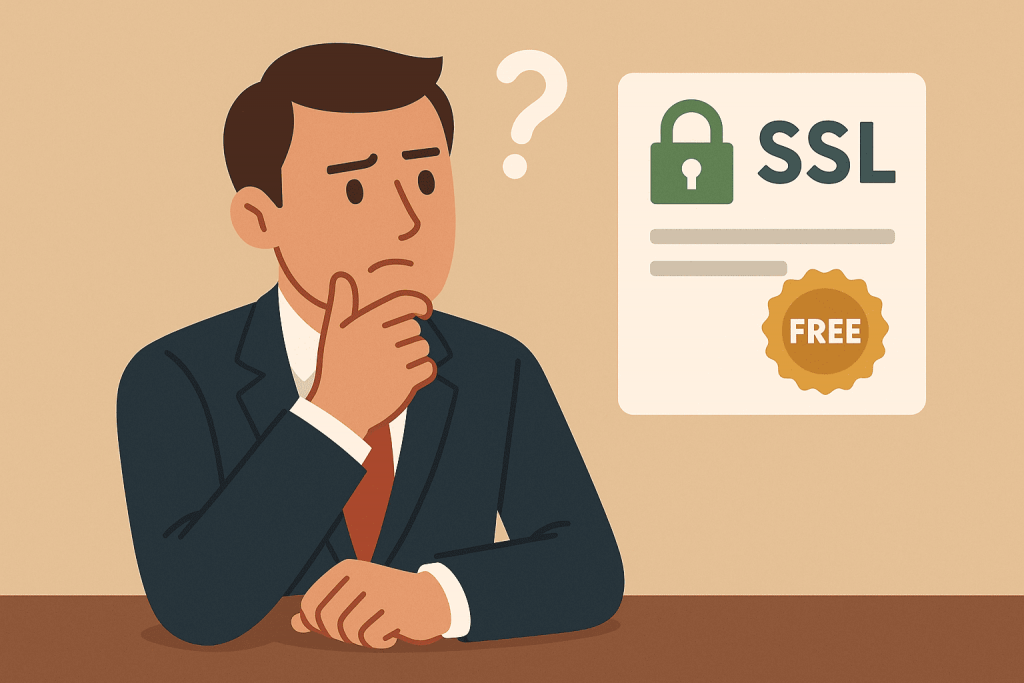
When we talk about website security, the first thing that comes to mind is the SSL certificate. It encrypts the data transmitted between the browser and the server, protecting it from interception. A site with the padlock icon in the address bar appears more trustworthy, which is why many companies use free SSL from Let’s Encrypt and similar providers. However, the question is whether this solution is always suitable for business. In reality, free SSL is a good starting point, but it doesn’t always offer the level of trust, control, and stability required for commercially valuable websites.
Trust and Business Identity
Free SSL certificates are issued automatically and do not contain information about the organization that owns the site. For everyday users this may not seem important, but for business it matters. When customers can see the verified company name in the certificate, their trust increases. This is critical for online stores, platforms handling personal data, login-based services, and B2B websites. A free SSL only verifies the domain, not the owner, so users cannot be sure the site truly belongs to the claimed business.
Support, Control, and Warranty
Another key difference lies in support and maintenance. Free certificates do not include dedicated technical support. If something goes wrong, the responsibility falls on the site owner or system administrator. Paid SSL certificates include support services, assistance with setup, and even financial warranty coverage in case of certificate compromise. For small sites this may seem minor, but for businesses relying on 24/7 availability, quick resolution is essential. Any issue with SSL can lead to temporary website inaccessibility and loss of customer trust.
Renewal and Availability Risks
Free SSL certificates typically have a 90-day validity period. They must be renewed frequently, and although the process is often automated, any failure in automation may result in an expired certificate. When this happens, the browser marks the site as “not secure,” and users often leave immediately. Even a few hours of such downtime can mean financial losses and harm to reputation. Paid certificates usually last a year or more, which reduces risks and improves reliability.
Brand Image and Customer Confidence
SSL is not only about encryption. It is also a signal of how responsibly a business treats data security. Free SSL works well for personal blogs, test environments, and small informational sites. But when it comes to ecommerce, financial services, medical platforms, SaaS products, and any business that handles customer data, saving on SSL may appear as a lack of commitment to reliability. A paid certificate becomes part of the brand image, reinforcing professionalism and trustworthiness.
Conclusion
Free SSL certificates are valuable and have made the web more secure overall. However, business operates in an environment of trust and competition. Where identity validation, service support, and continuous stability are important, paid SSL certificates remain the more reliable choice. They are not just a security tool but an investment in reputation and long-term customer relationships.

Leave a Reply